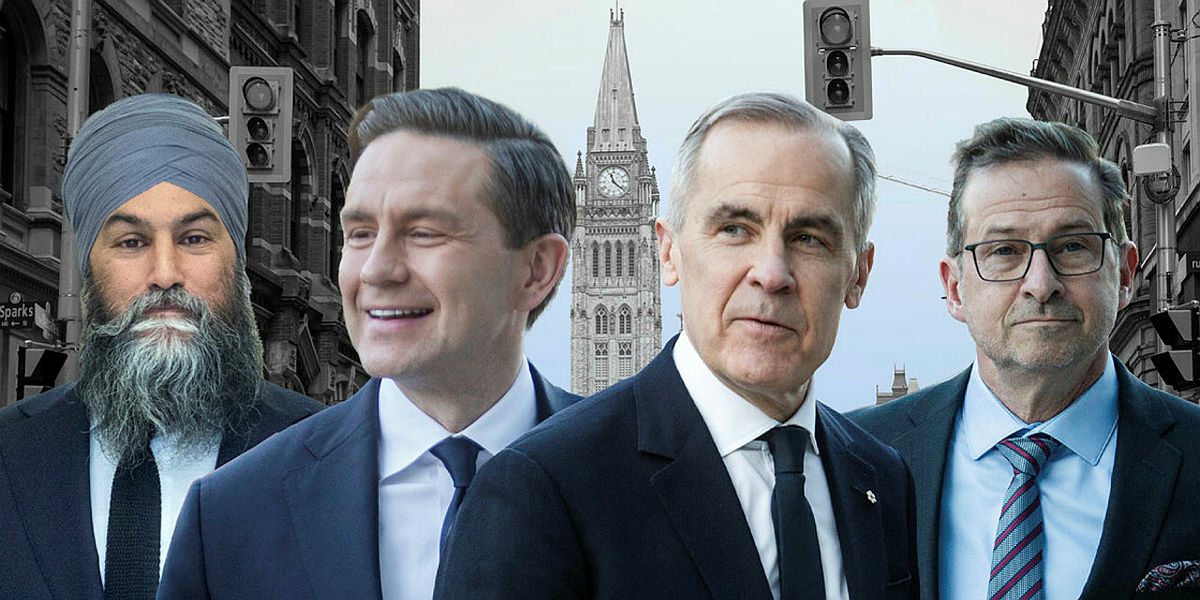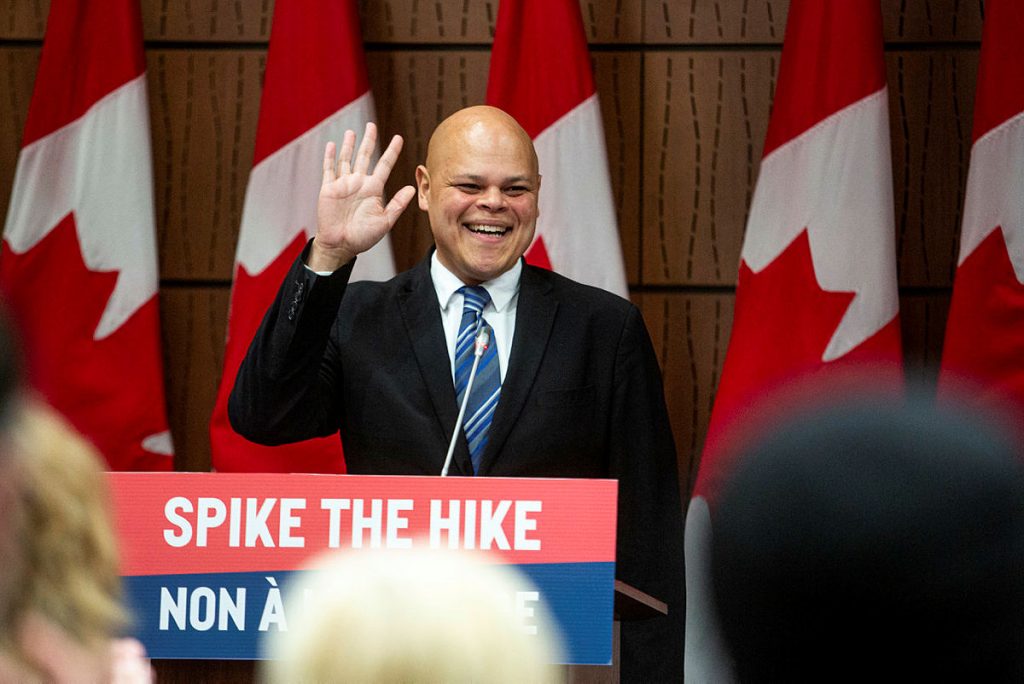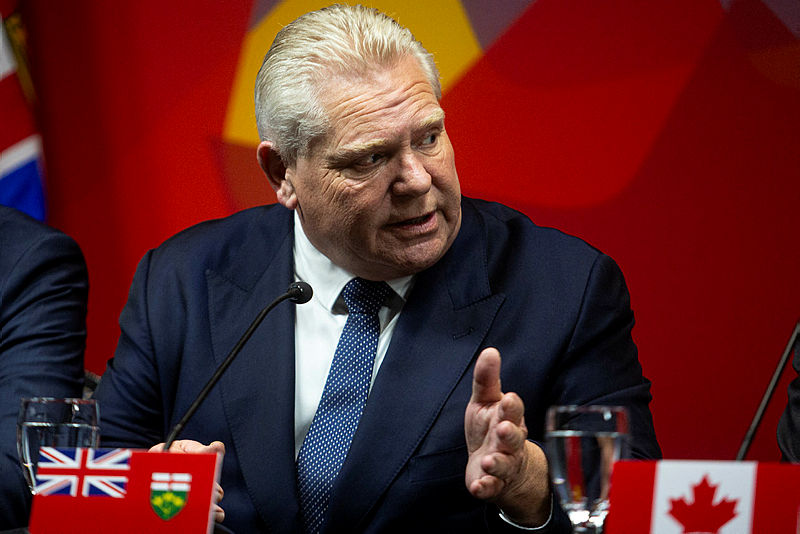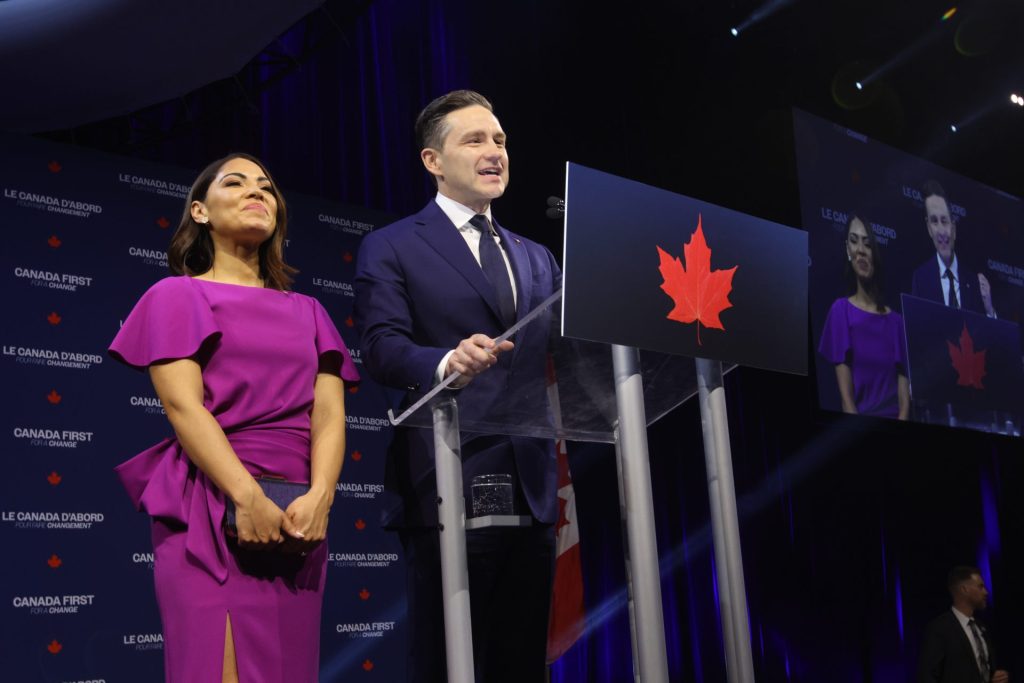Conservatives plunge into blame game after election defeat

After a disappointing performance and losing his own seat in the April 28 election, NDP Leader Jagmeet Singh offered his resignation, while blame games erupted within the Conservative Party over how they squandered a 27-point lead from earlier in the year and failed to form government.
By press time on April 29, the Liberals had won or were leading in 168 seats, the Conservatives in 144, the Bloc Québécois in 23, the NDP in seven, and the Greens in one. In the newly reconfigured 343-seat House of Commons, a party needs 172 seats to form a majority government.
In comparison, after the 2021 federal election—when the House had 338 seats—the Liberals won 160 seats, the Conservatives 119, the Bloc 32, the NDP 25, and the Greens two.
In his concession speech on election night, Singh announced he would step down once the party chooses an interim leader. On Monday evening, it was doubtful the NDP would secure official party status, which requires a minimum of 12 seats.
“Choosing to commit your life to politics obviously comes with some sacrifice, but we choose this life because of the chance to change the country you love for the better. We may lose sometimes, and those losses hurt. It’s tough, but we are only defeated if we stop fighting. We’re only defeated when we believe that those that tell us that we can never dream of a better Canada, a fairer Canada, a more compassionate Canada,” an emotional Singh told supporters in British Columbia.

Prior to Singh’s speech, Conservative MP-elect Jamil Jivani (Bowmanville–Oshawa North, Ont.) accused Ontario Premier Doug Ford’s Progressive Conservatives of undermining the federal party’s election prospects. Jivani argued that while federal Conservatives had stayed neutral during the last Ontario provincial election, Ford’s team did not do the same—ultimately damaging Conservative Leader Pierre Poilievre’s chances of forming government.
“When it was our turn to run an election, [Ford] couldn’t stay out of our business, using criticisms and all about distracting our campaign, trying to position himself as some kind of political genius that we need to be taking cues from,” said Jivani in an April 29 interview with the CBC.
During the 37-day election campaign, Kory Teneycke, the Progressive Conservative campaign director who led Ford to three consecutive victories, repeatedly questioned the Poilievre Conservatives’ electoral strategy—specifically, their failure to focus on the escalating trade war with the United States and President Donald Trump’s annexation threats. Teneycke pointed out that the Conservatives had held a 27-point lead over the Liberals in early January but were trailing by the end of the campaign, calling it a case of “campaign malpractice.”

“So when I talk about campaign malpractice, blowing a lead that big, and your response being, ‘I don’t believe in the polls,’ I don’t know. I think it’s kind of weak sauce,” Teneycke told CTV on April 11.
In media interviews Ford backed up Teneycke’s criticism of the federal Conservatives.
“I’ve said right from Day 1, he’s tough as nails, but he’s the best campaign manager in the country. And to be very frank, if Kory was running that campaign, I don’t think Mr. Poilievre would be in the position he’s in right now,” Ford told reporters on April 14. “At the end of the day, the people will decide which way they want this country to move forward. But sometimes the truth hurts.”
In his concession speech on election night, Poilievre showed no intention of stepping down, instead telling supporters that “change is hard” and would take time. As of press time on April 29, Poilievre was projected to lose his long-held Carleton, Ont., riding to Liberal challenger Bruce Fanjoy.
“I know you are disappointed,” said Poilievre in his election-night speech. “Change is difficult and it takes time.

As recently as this past December, many Liberal MPs and senior Liberals feared their party could fall to third or fourth place under then–prime minister Justin Trudeau, whose popularity had plummeted amid growing frustration over affordability and inflation. But public sentiment began to shift after Trudeau announced his departure on Jan. 6, with Chrystia Freeland’s (University–Rosedale, Ont.) December resignation from cabinet seen as the final blow to his leadership.
As Trump ramped up threats of tariffs and annexation after he re-entered the White House in January, the Liberals began to climb in the polls. Just eight weeks after Trudeau stepped down, the party elected former Bank of Canada and Bank of England governor Mark Carney (Nepean, Ont.) as its new leader and prime minister. Carney carried all 343 ridings in the leadership contest. Two weeks into his premiership, he called a snap federal election to capitalize on the momentum.
For nearly two years, Poilievre’s Conservatives had led the polls by double digits. But a combination of Trudeau’s resignation, the suspension of the carbon tax, and escalating Trump tariffs shifted the momentum. While the trade issue dominated voter concerns, Poilievre focused almost exclusively on the cost of living. Insiders suggest two key reasons for his silence: many in the Conservative base support Trump, and Carney’s economic credentials made him a more credible voice on international finance and trade—giving the Liberals a clear advantage on the issue.
Throughout the campaign—and even on election day—Trump continued pushing his rhetoric, falsely claiming the U.S. was subsidizing Canada by $200-billion, and suggesting on social media that Canada could become the 51st state in exchange for zero tariffs and skyrocketing industry growth.
“Elect the man who has the strength and wisdom to cut your taxes in half, increase your military power, for free, to the highest level in the World, have your Car, Steel, Aluminum, Lumber, Energy, and all other businesses, QUADRUPLE in size, WITH ZERO TARIFFS OR TAXES, if Canada becomes the cherished 51st. State of the United States of America,” Trump said on social media on election day.
U.S. Secretary of State Marco Rubio echoed similar sentiments on NBC’s Meet the Press, saying Canada would benefit from statehood and promising the U.S. would work with whoever wins the Canadian election. “We’ll deal with the new leadership of Canada,” Rubio said. “There are many things we work co-operatively with Canada on but we actually don’t like the way they treated us when it comes to trade.”
In a rally for Ottawa Centre Liberal Yasir Naqvi’s ultimately successful re-election campaign on April 26, former prime minister Jean Chrétien mocked Trump’s annexation proposal, jokingly thanking him for uniting Canada and suggesting he had nominated Trump for the Order of Canada—before quipping that Trump probably wouldn’t qualify due to his criminal record.
arana@hilltimes.com
The Hill Times






 LICENSING
LICENSING PODCAST
PODCAST ALERTS
ALERTS













